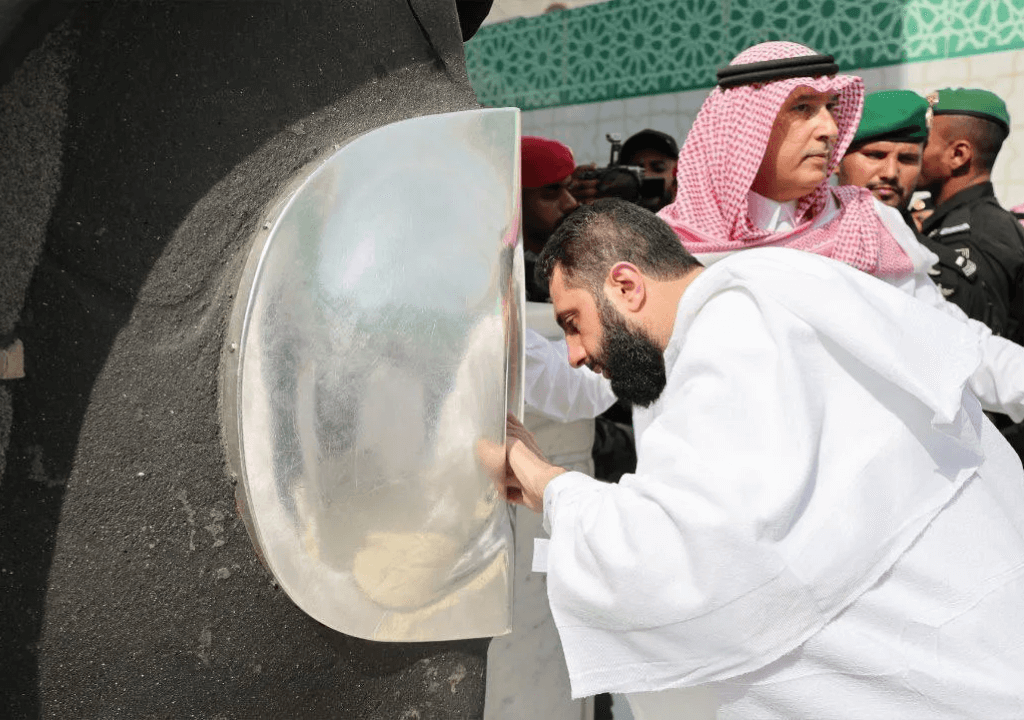The Middle East’s power struggle, once a contest between U.S.-led allies and a Russian-backed bloc, now tilts decisively in Washington’s favor. Russia’s decline and Iran’s mounting troubles have given the United States and its staunchest ally, Saudi Arabia, a commanding edge. While Washington and Moscow shaped the broader conflict, the fight on the ground unfolded between Iran and its proxies and a Saudi-led coalition that, despite internal rifts, often included Israel and Turkey. By 2025, the U.S.-Saudi alliance had everything falling into place. Israel crushed Hamas, Lebanon installed a pro-Western president, and Syria—long the region’s geopolitical fault line—found itself under an administration deeply tied to Turkey and Saudi Arabia. Many assumed Turkey would wield the greatest influence over Syria’s new leadership. But when President Al-Shaara made Saudi Arabia his first foreign destination, the message was unmistakable: Riyadh is back, reclaiming its place as the Middle East’s dominant power and the Islamic world’s standard-bearer, after years of ceding ground to Iran.
Syria’s transitional president, Ahmed al-Sharaa, met with Saudi Crown Prince Mohammed bin Salman in Riyadh on Sunday, making his first foreign visit since taking office—a move that highlights shifting regional dynamics. Sharaa, who seized power last week after leading the uprising that ousted Iran-backed Bashar al-Assad, now faces the challenge of reintegrating Syria into the Arab fold after nearly 14 years of war. In a written statement, he said the talks focused on humanitarian and economic cooperation, as well as long-term plans in energy, technology, education, and health. Saudi Arabia’s state news agency reported that the discussions also covered strengthening bilateral ties and addressing key regional developments.
Sharaa and his group, Hayat Tahrir al-Sham (HTS), are widely associated with Sunni Islamic extremism and have been accused of committing harsh acts against Alawites, other Shia groups, and Kurds in Syria. His leadership reflects a strong Sunni identity, reinforced by his personal background—born in Saudi Arabia and having spent part of his childhood there. By making Saudi Arabia his first official visit, Sharaa is signaling that Sunni Islamism is the guiding ideology of his administration and that Riyadh, its traditional power center, is his primary patron.
Since Assad’s fall, Syria’s new leadership has worked to strengthen ties with both Arab and Western governments, with Saudi Arabia taking the lead in this effort. Riyadh hosted Syria’s new foreign and defense ministers in early January, followed by a high-level meeting with Syrian, Arab, and Western officials later that month. Initially, there was speculation about whether Sharaa’s alignment with Turkey or his connections with Qatar would shape his foreign policy. Qatar’s emir, Sheikh Tamim bin Hamad Al-Thani, was the first head of state to visit Damascus after Assad’s ouster in December, suggesting strong ties. However, despite maintaining a balanced relationship with both Ankara and Doha, Sharaa’s priorities now lean toward Saudi Arabia.
Syria’s renewed ties with Arab leaders signal a sharp break from the years of isolation that followed Assad’s brutal crackdown on the 2011 protests, which led to the country’s suspension from the Arab League for more than a decade.
For Saudi Arabia, the past four years under Biden marked a period of political and economic turbulence, a stark contrast to the unrestrained confidence of the Trump era. The kingdom found itself navigating a more complicated regional landscape, even losing some influence over traditional satellites like the UAE, which increasingly asserted its own interests and distanced itself from Riyadh’s shadow. Yet, despite these setbacks, the broader currents of international politics have begun to shift in Saudi Arabia’s favor.
With Trump’s return to power, the U.S. once again needs a reliable Middle Eastern proxy, and no partner fits the role better than Riyadh. Under a renewed Republican administration, Saudi Arabia is poised not just to solidify its dominance in the region but to extend its influence, pulling more countries into its orbit—Syria now among them. After a brief period of recalibration, the kingdom is positioning itself back at the center of global politics, reclaiming its role as a primary powerhouse in the Middle East.








